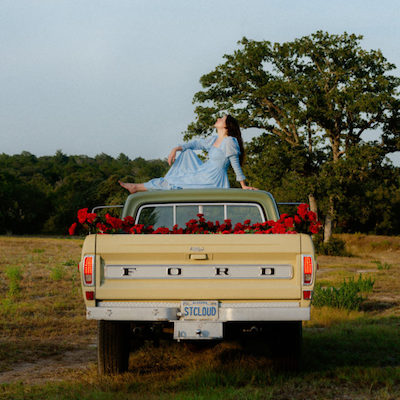
Secret Meeting score: 83
by Philip Moss
Across a career that has spanned almost three decades, Jim O’Rourke is perhaps best known to many for his six year sojourn as a member with Sonic Youth, or his collaboration and production on the likes of Wilco’s magnus opus, Yankee Hotel Foxtrot, or Smog’s Red Apple Falls and Knock Knock. In fact, in a 2013 interview with Time Out magazine, he stated that he still makes more money from work he did twenty years ago than material he does now.
But like so many artists on the Drag City label, there’s far more to O’Rourke than you realise from simply scanning his discography on All Music – in fact, it doesn’t even tell half the story. As well as his production credits, which most recently included the stunning, The Dream My Bones Dream by Eiko Ishibashi, O’Rourke has been releasing solo material at a regular rate since 1989 – which, despite including all manners of instrumental, noise experimentation, culminated in 2015 with the fairly straight, but no less magnificent, Simple Songs. However, buried in amongst his back catalogue is 1999’s Eureka. An album named after the Nicholas Roeg film of the same name, that is, in parts, his most sustained venture into the world of pop, and perhaps the best of his career.
At face value, opener, Prelude to 110 or 220/Women of the World, is an eight and a half minute long feminist manifesto. Oh, and it’s repetitive, with only one phrase (taken from an Ivor Cutler poem) sang on loop: ‘Women of the world take over! ‘Cause if you don’t, the world will come to an end. And it won’t take long.’ But this by no means does it justice. Because across the distance, it crams a plethora of rich and vibrant musicality. From its twee opening – a lushly picked, folky acoustic guitar – it suddenly explodes into a gorgeous pop bubble of tinkling glockenspiels, swirling synths, sublime strings, and cartoon harmonies that both The Beach Boys and Fleet Foxes would be proud of.
Despite being rather more muted in tone compared to the opener, the first half of Ghost Ship in a Storm is again vocally hook laden, and its pianos are bright – riding on top of a shaker that ensures the song maintains its shuffling momentum. At the half way mark, it takes a more muted turn – sliding into a jazz inspired interlude of fluttering brass; a characteristic that seamlessly crops up as a musical backdrop at regular intervals across the LP, but never feels out of place or contrived.
Since the release of Simple Songs, O’Rourke has exclusively released sound collages, created in his adopted home of Japan. Pre-dating these works, the first few bars of Movie on the Way Down features a field recording of falling rain – under which static flickers, droning synths groan and trumpets lazily sound – before the entrance of a melodic double bass and Wilco’s Glenn Kotchke’s multi-layered percussion give the piece direction. It’s almost five minutes before the Chicago native’s vocal enters, but when it does it is worth the wait – and is arguably the most beautifully poignant moment on the record: ‘There’s that word again- pride. Do you pride yourself on being alive? Do you feel pride when you’re alone?’
Instrumental centrepieces, Through The Night Softly and Please Patronize Our Sponsors, take on elements of calypso before entering the record’s most overt descent into jazz posturing. A cover of Burt Bacharach’s Something Big gets the record very much back on track as Edith Frost and Teria Garteris take the vocal lead on this tight slice of shifty 70s pop. While title track, Eureka, is the most experimental and quirky arrangement on the record – opening with a blur of idiosyncratic synths, that gives way yet another great vocal – this time reminiscent of Mark Oliver Everett – before the song wanders to its conclusion over an outro of wartime brass.
At less than two minutes long, closer, Happy Holidays, crams in more ideas than some do across an entire record. Growing from a brashly strummed electric guitar, O’Rourke delivers a melody (and falsetto) akin to Jeff Buckley, before it erupts with theatric floor toms, and then promptly falls apart.
Like so much of the O’Rourke canon, Eureka is a hard record to pin down – such is its shapeshifting nature. And despite its heavy emphasis on sugarcoated melody, its quirky experimentation will keep your ears pricked, no matter what direction it heads off in.





